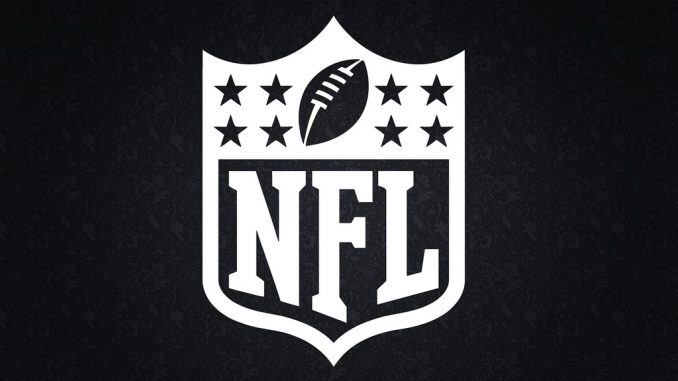
It’s no secret that the NFL is in a transitional period. From the seemingly weekly rule changes, to issues with concussion protocol and the ambiguity of what a catch actually is, how does the league expect the players, let alone the fans, to stay loyal?
On the most macro level, the game itself is changing. Gone are the days of your fathers “smash mouth” football. Now, the league is doing whatever they can to protect their prized athletes, but are doing so in ways that simultaneously handicap certain players and the game itself.
It was one call during an NFC Divisional Playoff on Jan. 11, 2015 that forever altered the course of the NFL rulebook.
With four minutes and 38 seconds left to play at Lambeau Field, Cowboys then starter Tony Romo attempted to lead his team to a come-from-behind victory over Aaron Rodgers and the Green Bay Packers. He threw a perfect 30-yard ball to his go-to receiver Dez Bryant, who after falling to the ground, extended his arm toward the goal line in an effort to score and “lost control of the football.”
Based on the league’s ambiguous rules, football fans still argue to this day about Bryant’s non-catch ruling. At the time, the league was still in the midst of figuring out what a catch actually was. Did it require a “football move” or total ball security throughout the entire process? The players were confused, and the fans even more so.
Before the start of the 2018 NFL season, NFL Senior Vice President of Officiating Al Riveron announced that the NFL “took the catch rule, and re-wrote it.”
“There are three components of a catch,” Riveron said. “Control, two feet or another body part and a football move.” A football move is any action that occurs after the catch, such as reaching, bringing the ball in and a third step. Riveron concluded his statements on the new catch rule with an example: the Dez Bryant non-catch.
Based on the new rule, the then non-catch will indeed be ruled a catch moving forward.
Sure, the NFL has listened to some of its critics and made some much-needed changes; however, as one chapter of the NFL rulebook closes, another opens.
For as long as I can remember, quarterbacks, specifically pocket passers, have received the benefit of the doubt when it comes to “roughing the passer” penalties. Time after time, officials would call penalties on pass rushers for late hits, even when their momentum would not allow otherwise. Many of these calls have, and still do, affect the outcome of games. Because of this, the NFL has stepped in, but not in the way players or fans would have hoped.
As is anything in life, to perfect something takes practice and repetition. Pass rushers in the NFL have been repeatedly practicing their pass methods for years. Their job is to tackle, and hopefully strip the ball from the quarterback. Now, the NFL is coming in and changing their guidelines for such players with body weight regulations.
As of 2018, the new rule states: “A rushing defender is prohibited from committing such intimidating and punishing acts as ‘stuffing’ a passer into the ground or unnecessarily wrestling or driving him down after the passer has thrown the ball … When tackling a passer who is in a defenseless posture (e.g., during or just after throwing a pass), a defensive player must not unnecessarily or violently throw him down and land on top of him with all or most of the defender’s weight. Instead, the defensive player must strive to wrap up the passer with the defensive player’s arms and not land on the passer.”
The nature of the job is to be violent and aggressive. We get that it’s a dangerous sport and that there are in fact some dirty players in this league. However, “unnecessary” actions from pass rushers come as a result of them trying to do their job, sack the quarterback. These players cannot watch the quarterbacks every move to know when and when not to do what they are paid to do.
This rule has already come back to bite the NFL in the butt.
During a battle between the Patriots and Chiefs this past Sunday evening we saw what the league set out to prevent: rules affecting the result of a game.
It was third and goal and Tom Brady and co. had the ball on the Chiefs’ four-yardline. When Brady saw he had no options, he pump-faked in an effort to throw off the defense. Chiefs’ rookie linebacker Breeland Speaks saw this, and thinking Brady had thrown the ball, released him from his grasp, giving Brady a free pass into the end zone.
Speaks was attempting to oblige by the new rule, and as a result misread the play, giving up the go-ahead touchdown in a game that will certainly affect playoff seeding.
If this play has told us anything about the new rule it’s that by attempting to protect quarterbacks, we are sacrificing the integrity of this great game. Players are now focusing too much on the rules and too little on the game itself.
We are well aware of the implications of playing in the NFL. Players are going break bones, tear ACL’s and even retire prematurely. No rule is going to change that. This is why we have penalties. However, too much restriction results in, as we just saw, confusion and restraint while too little can result in career ending injuries.
Albeit more dangerous, the NFL was a much better product before they decided to re-write the rulebook. It was more entertaining, penalties meant more, and most importantly players didn’t have to play in a constant state of paranoia.
I never thought I’d say this, but the NFL is, once again, ready for a change.
